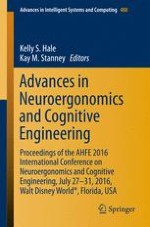
2017 | OriginalPaper | Buchkapitel
Cued Recall with Gaze Guiding—Reduction of Human Errors with a Gaze-Guiding Tool
verfasst von : Barbara Frank, Annette Kluge
Erschienen in: Advances in Neuroergonomics and Cognitive Engineering
Aktivieren Sie unsere intelligente Suche, um passende Fachinhalte oder Patente zu finden.
Wählen Sie Textabschnitte aus um mit Künstlicher Intelligenz passenden Patente zu finden. powered by
Markieren Sie Textabschnitte, um KI-gestützt weitere passende Inhalte zu finden. powered by